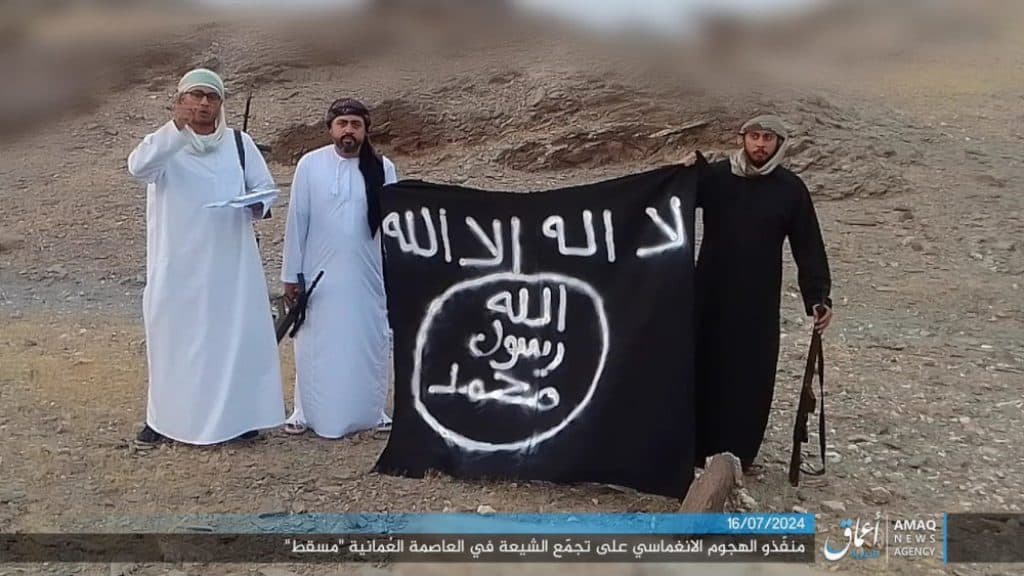
The Islamic State (IS) claimed responsibility for a July 15 evening attack on the Shia Ali bin Abi Talib Mosque that killed six people in the Wadi Kabir area of the Omani capital of Muscat. IS’s media wing, Amaq,stated that three IS “inghimasis” (suicide infiltrator commandos) opened fire on Shia worshipers with machine guns, killing and wounding some 35 Shias and Omani policemen. Amaq promptly followed up with another statement claiming that the “inghimasis clashed with the apostate Omani forces” that arrived at the scene, resulting in the “killing and wounding of five of them, including an officer.”
The Royal Oman Police stated on July 16 that nine people were killed in the clashes, including one policeman, one Indian, four Pakistani nationals, and the three IS militants. The Pakistani Ministry of Foreign Affairs published a statement on July 16 mentioning that four Pakistanis were killed and some thirty wounded. Video footage from the incident depicts worshipers fleeing the mosque as gunshots ring out, followed by a voice saying “Ya Hossein!”
The attack occurred on the evening of Ashura, a day of mourning for Shia Muslims commemorating the third imam and grandson of the Prophet Muhammed. IS and other Sunni extremist groups have frequently targeted Shia gatherings across the Middle East and South Asia and label the sect as “Rafidites,” which means “refusers” [of the prophet’s traditions].
Documents from communications between IS’s central command in Iraq/Syria and its Yemen branch led by Abu Usama al-Muhajir in 2017 revealed the group’s ambitions of striking Yemen’s neighbors in the Arabian Peninsula and Oman in particular. Omani authorities are yet to disclose the nationality of the three IS militants, so it remains unclear whether the attack was coordinated via IS cells in Yemen.
The United States Central Command (CENTCOM) reported on July 16 that IS is seeking “to reconstitute” as the number of its attacks in Syria and Iraq has doubled compared to the previous year: “IS has claimed 153 attacks in Iraq and Syria. At this rate, ISIS is on pace to more than double the total number of attacks they claimed in 2023.”
The report adds that from January to June of 2024, CENTCOM, in collaboration with Iraqi Security Forces, the Syrian Democratic Forces, and other “Defeat ISIS” partners, executed 196 missions against IS. These operations resulted in 44 IS operatives killed and 166 detained. In Iraq, 137 operations led to the death of 30 ISIS operatives and the capture of 74, while in Syria, 59 missions with the SDF and other partners resulted in 14 ISIS operatives killed and 92 detained.
The Khorasan branch of the IS, known as ISKP, has recently reemerged as a transnational actor with the capacity to carry out operations across Asia and Europe by leveraging its stronghold in Afghanistan and its networks in Central and South Asia. The recent attack in Oman and CENTCOM’s report indicate that IS strongholds across the Middle East present a threat as formidable as its Asian branch.







